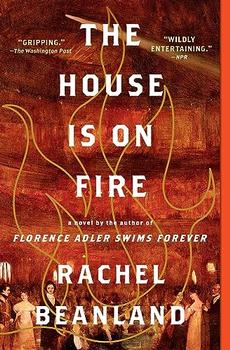Summary | Excerpt | Reviews | Beyond the Book | Readalikes | Genres & Themes | Author Bio

Richmond in the winter is a perennial party. The General Assembly meets from early December through late January, its one hundred and ninety-five delegates and twenty-four senators presenting and voting on a year's worth of legislation during the brief window of time when it is too cold to plant so much as a radish in the ground. Virginia's planters travel to the capital with their families, staying in taverns and boardinghouses—if they don't have property in town—or with family and friends who can host them. During the day, the men convene at the capitol and the women shop or call on friends who live too far afield to visit during the remaining ten months of the year. At night, there are card parties and balls and—of course—plays.
"Here we are," says Margaret. "Box six." She pulls aside a thick velvet curtain to reveal a box already crowded with more than a dozen people, all of whom look far less interested in the impending performance than in each other.
"Well, if it isn't Sally Henry," says a voice that comes from a dark corner of the box, where several men are congregated.
Sally can feel the muscles between her shoulder blades tighten. She took Robert's name a dozen years ago now, as a girl of nineteen, but plenty of men still refuse to think of her as anyone other than Patrick Henry's daughter.
She turns to find Tom Marshall smiling at her.
"Mr. Marshall," says Sally, offering him her hand and a shallow grin.
Tom is a congenial man, whom Sally knew best when they were children and their fathers regularly sat on the same side of the courtroom together. When the Henrys lived at Salisbury, the families saw each other with some regularity.
"Still as gorgeous as a Greek goddess."
"Don't lie to me." Sally is a becoming woman, although she believes that, at thirty-one years old, she's lost the privilege of being called gorgeous. Her hair, which has always been dark, still falls past her shoulders in loose waves, but now there is a single streak of gray that is hard to hide when she rolls the curls that frame her face. Her eyes are a dull gray—not blue like her sister Dolly's—and while Sally was proud of her pale complexion as a girl, Robert's finances were never so secure that she could afford to stay out of the sun. In the nine years she was married, her skin turned a golden brown.
"Margaret, you know Tom Marshall?" Sally asks, almost certain that she does.
"We met at the races. Was it last year or the year before?"
Tom takes Margaret's hand, then asks after Archie. Before Margaret can explain that he is on his way, Tom cuts her off. "Do you both know my cousin, Edward Colston?" Margaret does, Sally does not. "And then, this fine fellow is my good friend Alexander Scott."
Sally does not know that she would have described Mr. Scott, who wears an oversized cravat and leans on a sword cane, as a fine fellow. He is probably no older than Robert was when he died, but he carries himself like an old man. Whereas Robert was sturdy, with cheeks the color of cherries, Mr. Scott is pale and so thin he looks ready to blow over in a strong breeze. He wears a beard, which obscures his mouth completely, and his shoulders are so stooped she is tempted to treat him like one of Margaret's children and tell him to stand up straight. All that being said, he has nice eyes, which counts for something.
"Are you any relation to Richard Scott?" Margaret asks. "The delegate from Fairfax County?"
Mr. Scott shakes his head no. "I know him. I think he's here tonight, in fact. But I can't say I'm related to him."
"Mr. Scott is himself serving in the Assembly. He's in his first term," says Tom.
Margaret gives her new acquaintance an appraising look, as if she hadn't quite seen him before. "House or Senate?"
"House."
Mr. Scott seems unwilling or unable to supply further information on the subject, so Margaret asks, "For which county?"
Excerpted from The House Is on Fire by Rachel Beanland. Copyright © 2023 by Rachel Beanland. Excerpted by permission of Simon & Schuster. All rights reserved. No part of this excerpt may be reproduced or reprinted without permission in writing from the publisher.




Believe those who are seeking the truth. Doubt those who find it.
Click Here to find out who said this, as well as discovering other famous literary quotes!
Your guide toexceptional books
BookBrowse seeks out and recommends the best in contemporary fiction and nonfiction—books that not only engage and entertain but also deepen our understanding of ourselves and the world around us.